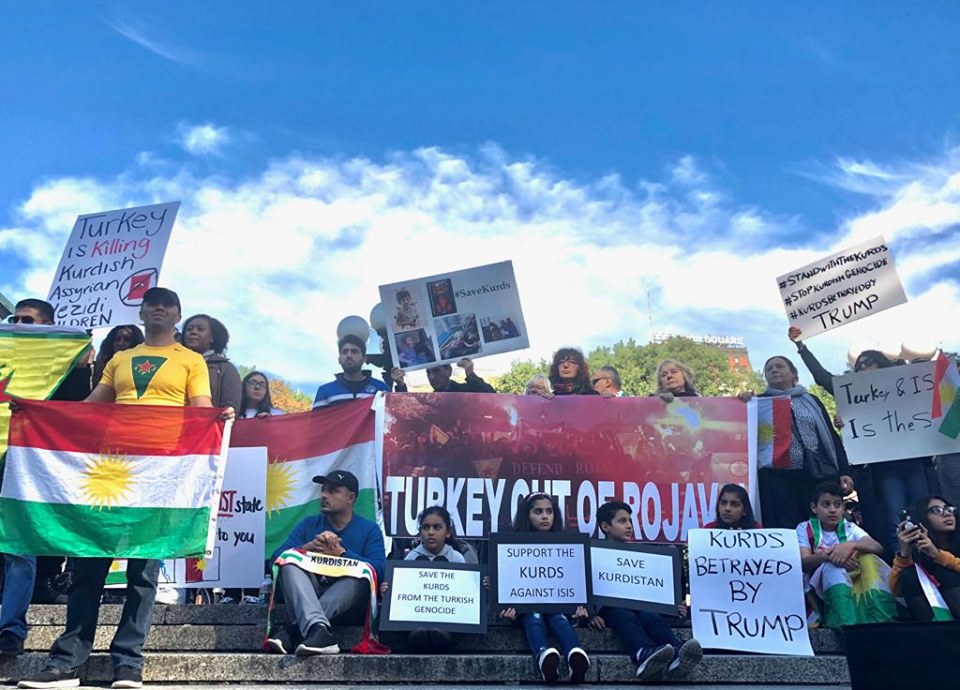Terror & Humanism
Reasons to be Fearful: A Response to Fredric Smoler
I very much appreciate Mr. Smoler’s arguments in “They Are Not Us: More Thoughts on German Resistance to Nazism,” his well-considered response to my interview with filmmaker Hava Beller. I would like to clarify a few points.
Michelet on the Bastille
Excerpted from Jules Michelet’s History of the French Revolution, translated by Charles Cocks.
A World Without Borders
I just wanna feel myself, you want me to kill myself
Quintessential Mesopotamian Protests
My old friend Charlie Keil emailed me–“See why you like Kanan Makiya. Love those lions.”–after he read Makiya’s recent piece in the Kenyon Review, “The Dying Lion.”
The Groveland Four’s Story Bends Toward Justice
Last week, Florida’s governor, Republican Ron DeSantis, accepted the unanimous recommendation of the state’s clemency board and issued pardons to the “Groveland Boys”—four African Americans—Earnest Thomas, Charles Greenlee, Samuel Shepherd and Walter Irvin—who were wrongly accused of raping a white women seventy years ago. Back then, they became victims of Jim Crow injustice and, in particular, of a Southern sheriff, Willis McCall, who made “Bull Connor look like Barney Fife.” To quote Gilbert King who uncovered quashed evidence collected by the FBI of McCall’s crimes against the Groveland Four, including the extra-judicial killing of Samuel Shepherd and attempted murder of Walter Irwin. King’s book, Devil in the Grove: Thurgood Marshall, the Groveland Boys, and the Dawn of a New America (2012) informed a citizens’ movement that pressed Florida’s officials to act.
Devil in the Grove (Redux)
In 2013 I published an essay (sparked by Obama’s public responses to the killing of Trayvon Martin) that took in Gilbert King’s Devil in the Grove–the book behind last week’s pardons of the Groveland Four. What follows is a Devil-centric excerpt from that 2013 post.
“Pour Out Your Wrath”
The author posted this piece at the Gush Shalom site on the eve of Passover with the following short intro: “I was about to write an article about Pesach eve when I remembered that I wrote exactly the same article six years ago… – I just have nothing to add.” Seems like he got it all…
The Doomsday Machine
I have been hit like a ton of bricks by Daniel Ellsberg’s new book, The Doomsday Machine, Confessions of a Nuclear War Planner.[1]
Lieutenant Weinberg’s Lament
If it makes you feel any better, Americans are not all THAT divided. For example, there’s what NYT’s Frank Bruni called “the recent ugliness at Evergreen State College.” Long story short, student activists invited Evergreen’s whites to report to an off-campus “all-day program focusing on allyship and anti-racist work” rather than going to class. The so-called “Day of Absence,” held this year on April 14, is an annual Evergreen event that usually sees students of color meeting offsite for programs and conversations. This year, organizers opted to flip the script.
Juan Gelman
When Argentine poet Juan Gelman died in January, 2014—he left behind twenty books of poetry. He is best known for work rooted in the Argentine political repression of the 70s, when military forces brought a reign of terror to Buenos Aires. In 1976, Gelman’s son, Marcelo, and daughter-in-law, Claudia, pregnant with the poet’s grandchild were “disappeared.”
